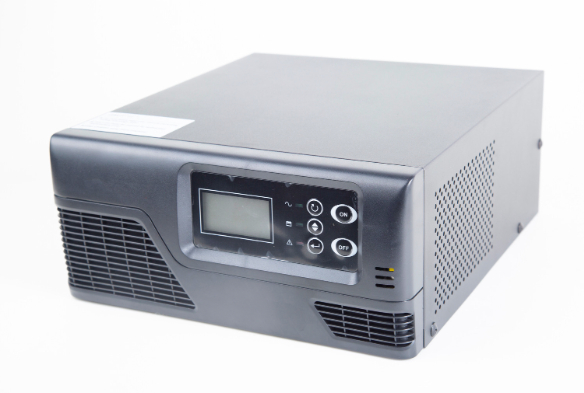Last Updated on November 25, 2022 by mdmtool
UPS and inventor both provide power but there are many differences between them. An inverter is an electrical device that converts direct current (DC) into alternating current (AC). On the other hand, UPS is an abbreviation for Uninterruptible Power Supply.
What Is A UPS?

UPS stands for Uninterruptible Power Supply. It is a device that provides emergency power to a load when the input power source fails. A UPS differs from an auxiliary or emergency power system or standby generator in that it will provide near-instantaneous power by supplying energy stored in batteries, super-capacitors, or flywheels until the alternate power source can be turned on.
What Is An Inverter?

An inverter is an electrical device that converts direct current (DC) into alternating current (AC). The input voltage, output voltage and frequency, and overall power handling depend on the design of the specific device or circuitry. The inverter does not produce any power; the DC source provides the power.
Difference Between Inverter And Ups
- Use : Inventors provides backup power in a power outage. While, UPS provides emergency power to devices such as computers and servers to prevent data loss.
- Maintenance & Lifespan: UPS UPS units must be regularly tested and maintained. The batteries need to be replaced every 3-5 years. When not properly maintained, UPS units can pose a fire hazard.
- Size & Weight: An inverter is usually smaller and lighter than a UPS. This is because an inverter only converts DC to AC, while a UPS also has batteries or other energy storage devices.
- Price: UPS units are more expensive than inverters because they have more features and components.
- Use in applications: Inverters are used in various applications, from small devices such as laptops to large industrial systems. UPS is mostly used in mission-critical applications where a power outage could lead to severe consequences.
How Does An Inverter Work?

An inverter takes the incoming DC power from batteries or solar panels and changes it to standard AC power that household appliances can use.
Inverters are rated by their maximum wattage output. A typical residential solar system may have a 1,000-watt (1-kilowatt) inverter, but larger systems may have several kilowatt inverters.
How Does A UPS Work?

A UPS is a device that provides backup power to devices in the event of a power outage. A UPS is different from an inverter because it also has a built-in battery, which allows it to provide power to devices for a short time (usually around 30 minutes).
UPS units are also rated by their maximum wattage output. A small UPS unit may only be able to power a few devices, while a larger UPS unit may be able to power an entire computer system.
Which Are The Factors To Be Considered While Selecting Energy Storage Devices?
- Battery type: There are lead-acid batteries, lithium-ion batteries, and nickel-cadmium batteries. Among these, lead-acid batteries are the most economical option but have a shorter life span. Lithium-ion batteries are more expensive but have a longer lifespan. Nickel-cadmium batteries are also long-lasting.
- Capacity: The capacity of a battery is usually measured in watt-hours (Wh). The capacity you need will depend on how much power you want to be able to store.
- Voltage: Most batteries used for energy storage are either 12 volts or 24 volts. Some devices, such as solar inverters, can work with either voltage. However, other devices, such as batteries, must be matched to the voltage of the device they will be used with.
- Cycle life: The cycle life of a battery is the number of times it can be discharged and recharged before its capacity degrade. The cycle life is typically between 500 and 1,000 for lead-acid batteries. Lithium-ion batteries typically cycle life between 2,000 and 5,000 cycles.
- Depth of discharge: The depth of discharge (DOD) is the percentage of a battery’s capacity that can be safely discharged without damaging the battery. The DOD is typically between 50% and 80% for lead-acid batteries. The DOD is typically between 80% and 100% for lithium-ion batteries.
FAQs
Do I Need a UPS If I Already Have an Inverter for My Home?
You may not need a UPS if you have an inverter for your home. It depends on what you want to use the UPS for. If you wish to backup power in case of a power outage, then an inverter may be all you need. However, if you want to have backup power for your computer or other electronic equipment, you may need a UPS in addition to an inverter.
Can a UPS be used as an Inverter and Vice Versa?
No, a UPS cannot be used as an inverter and vice versa. They are two different devices that serve two other purposes. An inverter converts DC power to AC power, while a UPS provides backup power in case of a power outage.
Do I Need a UPS if I Have Solar panels?
If you have solar panels, you may not need a UPS. Solar panels provide DC power, which can be converted to AC power by an inverter. However, if you want to have backup power for your computer or other electronic equipment, you may need a UPS in addition to an inverter.
Conclusion
In general, an inverter is a device that changes direct current (DC) to alternating current (AC). A UPS, on the other hand, is an uninterruptible power supply that provides emergency power to a load when the input power fails.





